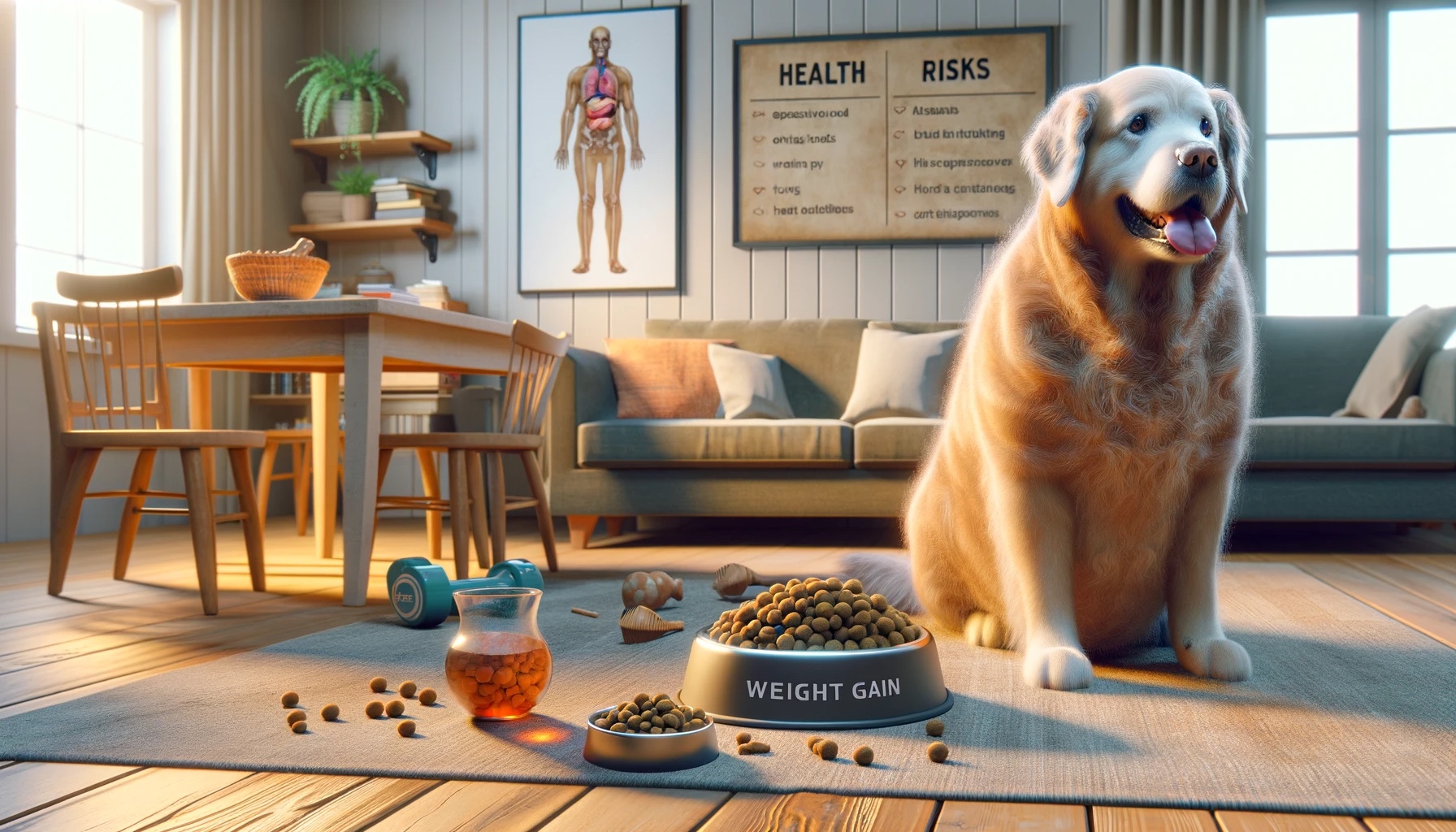Home>Health & Wellness>Behavior & Cognitive Care>Behavioral Changes>Understanding Weight Gain in Old Dogs: Causes, Risks, and Supportive Measures


Behavioral Changes
Understanding Weight Gain in Old Dogs: Causes, Risks, and Supportive Measures
Modified: November 27, 2023
Helping your old dog maintain a healthy weight is a journey of love and care. Read on to find out more.
(Many of the links in this article redirect to a specific reviewed product. Your purchase of these products through affiliate links helps to generate commission for Pawsomeoldies.com, at no extra cost. Learn more)
As our beloved canine companions enter their golden years, many dog owners notice a worrying trend: weight gain in old dogs. This isn’t just a cosmetic issue; it’s a health concern that can significantly impact their quality of life. Let’s explore the causes, risks, and what we can do to help our aging pets maintain a healthy weight.
Why Do Older Dogs Gain Weight?
Several factors contribute to weight gain in senior dogs:
- Reduced Activity: As dogs age, they tend to be less active.
- Slower Metabolism: Metabolic rates decrease with age.
- Health Issues: Conditions like hypothyroidism can lead to weight gain.
The Health Risks of Excess Weight
Carrying extra pounds can lead to several health issues in dogs:
- Joint Stress: Excess weight puts additional strain on joints, exacerbating conditions like arthritis.
- Respiratory Complications: Overweight dogs often struggle with breathing issues.
- Increased Risk of Diseases: Obesity can lead to diabetes, heart disease, and other serious conditions.
Recognizing the Signs
How do you know if your dog is overweight? Look for these signs:
- Difficulty in Feeling Ribs: You should be able to feel your dog’s ribs without pressing hard.
- Loss of Waistline: Overweight dogs often lose the visible definition of their waist.
- Decreased Stamina: A noticeable decrease in energy and stamina.
The Role of Diet in Managing Weight
Diet plays a crucial role in managing your dog’s weight:
- Quality of Food: Opt for high-quality, age-appropriate dog food.
- Portion Control: Ensure you’re not overfeeding your dog.
- Treats in Moderation: Treats should be given sparingly.
The Importance of Regular Exercise
Exercise is vital for weight management:
- Daily Walks: Even short, gentle walks can make a difference.
- Playtime: Engage in light play to keep your dog active.
- Swimming: A great low-impact exercise for older dogs.
Consulting with Your Veterinarian
Before starting any weight loss plan, consult your vet to:
-
- Rule Out Medical Issues: Ensure weight gain isn’t due to an underlying health problem.
- Create a Tailored Plan: Develop a weight management plan that’s safe and effective for your dog’s specific needs
Monitoring Progress and Adjustments
Regularly monitor your dog’s weight and adjust their diet and exercise plan as needed:
- Weigh-ins: Regular weigh-ins help track progress.
- Diet Adjustments: Modify their diet based on weight changes.
- Exercise Intensity: Increase or decrease exercise intensity based on their health and stamina.
The Psychological Aspect of Feeding
Feeding our pets is often an emotional act. It’s important to:
- Avoid Overfeeding: Resist the urge to feed extra as a sign of love.
- Healthy Treats: Opt for low-calorie, nutritious treats.
- Feeding Schedule: Stick to a consistent feeding schedule.
The Power of Patience and Consistency
Weight loss in older dogs requires patience and consistency:
- Gradual Changes: Sudden changes in diet or exercise can be harmful.
- Consistent Routine: Maintain a regular routine for feeding and exercise.
- Celebrating Small Victories: Acknowledge even small improvements.
When to Consider Specialized Diets
In some cases, specialized diets may be necessary:
- Prescription Diets: Vet-recommended diets for weight management.
- Senior-specific Formulas: Designed to meet the nutritional needs of older dogs.
The Role of Supplements
Certain supplements can support weight management:
- Joint Supplements: To help with mobility issues.
- Omega-3 Fatty Acids: For overall health and well-being.
Engaging in Low-Impact Activities
Choose activities that are gentle on your dog’s joints:
- Leisurely Walks: Avoid strenuous hikes or runs.
- Interactive Toys: Stimulate their mind without excessive physical strain.
- Gentle Play: Tailor playtime to their comfort and ability levels.
Understanding Your Dog’s Changing Needs
As dogs age, their needs change. Understanding and adapting to these changes is key to their well-being.
A Journey of Love and Care
Helping your old dog maintain a healthy weight is a journey of love and care. It’s about enhancing their quality of life and ensuring their golden years are as joyful and comfortable as possible.
